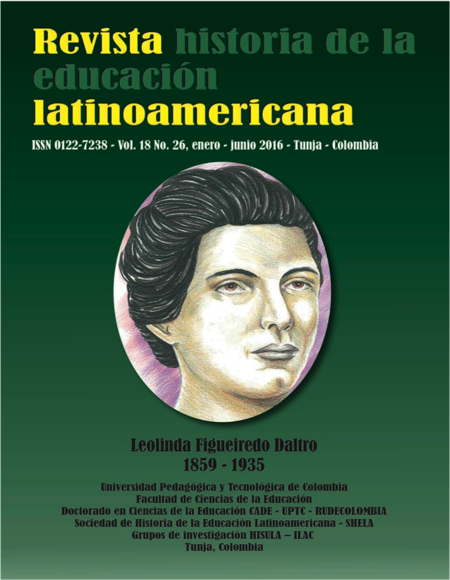Teachers Colleges in Guatemala Origin, development, crisis, and current situation

Abstract
This article aims to synthesise the origins, development and situational crisis of Teachers Colleges in Guatemala: It presents a chronological analysis and includes the main centers, giving their founding dates and location. Some legal issues are touched upon because of their relevance to the institutions’ social role, given that these institutions not only offer enhanced social status, but also were the only option for youth of humble origin. As expressed Alvarez V. “...rurality and poverty are major factors in those departments where teaching was the main opportunity to mobility”. The study also discloses the disproportionate increase in public Teachers Colleges and particularly, in private ones, which generated an increase in young men and women who leaned toward teaching, not always by vocation. The significant increase in admissions was not matched by quality either in teachers training or in updating the training model., This created a crisis in teachers colleges in different areas - infrastructure, overpopulation, educational problems, model type issues, among others. The result was thousands of graduates every year with little chance of finding work in teaching, so that teachers resigned themselves to accept any unskilled job they were offered. The strategy adopted by the Ministry of Education to deal with this crisis was to cancel primary school teachers training in Teachers Colleges, leaving these centers to continue offering offering only the pre – primary teaching career and a degree in high school education. In the latter case, the candidate must continue at university level for three years in order to obtain the title of Teacher in Intercultural Primary or Bilingual Intercultural Education, Music, Physical Education or Teacher in Productivity and Development. The strategy was somewhat controversial. Today, many of the remaining Teachers Colleges are not resigned to their new role, they have declined in terms of population and make every effort to survive in very difficult conditions. Some private colleges have organized for the purpose of following legal proceedings in the courts in order to reverse the decision to cancel teachers training in Teachers Colleges and private schools. So far the decisions have not been in their favour. Nevertheless, other legal remedies are still being studied. Regardless of this situation, the offer of majors for teachers training in primary level and its specialities in college are underway this first semester of the year.
Keywords
Teacher Colleges; Teacher Training; Initial training; Crisis; Reforms; Majors; Specialties
Author Biography
Oscar Hugo López Rivas
Doctor en Educación graduado en la Universidad de la Salle de Costa Rica, director fundador del Instituto de Investigaciones Educativas de la Escuela de Formación de Profesores de Enseñanza Media de la Universidad de San Carlos de Guatemala, coordinador del grupo de investigación denominado formación del profesorado, EFPEM/USAC, miembro de HISULA. El presente artículo se relaciona con el proyecto de investigación sobre escuelas normales en Guatemala y la formación inicial.
José Enrique Cortez Sic
Investigador. Magister en Educación Bilingüe Intercultural. Profesor Titular IV en la Escuela de Formación de Profesores de Enseñanza Media –EFPEM-, Universidad de San Carlos de Guatemala. Ciudad Universitaria, zona 12, Guatemala.
References
- Argueta, B. (2004). Censo de Escuelas Normales de Guatemala. Universidad Landívar de Guatemala. Editorial Universidad Rafael Landívar.
- Álvarez, V. (2009). A pesar de todo, optimistas. Adolescentes y la formación de maestros.
- Editorial de Ciencias Sociales. Guatemala.
- Estrada, Julio (2011). El futuro laboral para los egresados de magisterio en Guatemala. Informes breves de investigación No. 2. Guatemala: USAID-REAULA Ministerio
- de Educación. 2012. Estrategia para una educación de calidad para la niñez y
- juventud guatemalteca. Guatemala: MINEDUC.
- García, M. (1988). Cien años de Normalismo 1830 -1930. Editorial Serviprensa, Guatemala.
- González Orellana, Carlos (2007). Historia de la Educación en Guatemala. Guatemala: Editorial Universitaria, USAC.
- López, O. (2014) Historia de Maestras Rurales en Guatemala. Escuela de Formación de Profesores de Enseñanza Media –EFPEM–, Universidad de San Carlos de Guatemala –USAC-
- Preal. 1998. El futuro está en juego. Informe de la Comisión Internacional sobre Educación, Equidad y Competitividad Económica.
- Universidad de San Carlos de Guatemala - Escuela de Formación de Profesores de Enseñanza Media. 2008. Bases para el Diseño del Sistema Nacional de Formación Docente en Guatemala. Guatemala.
